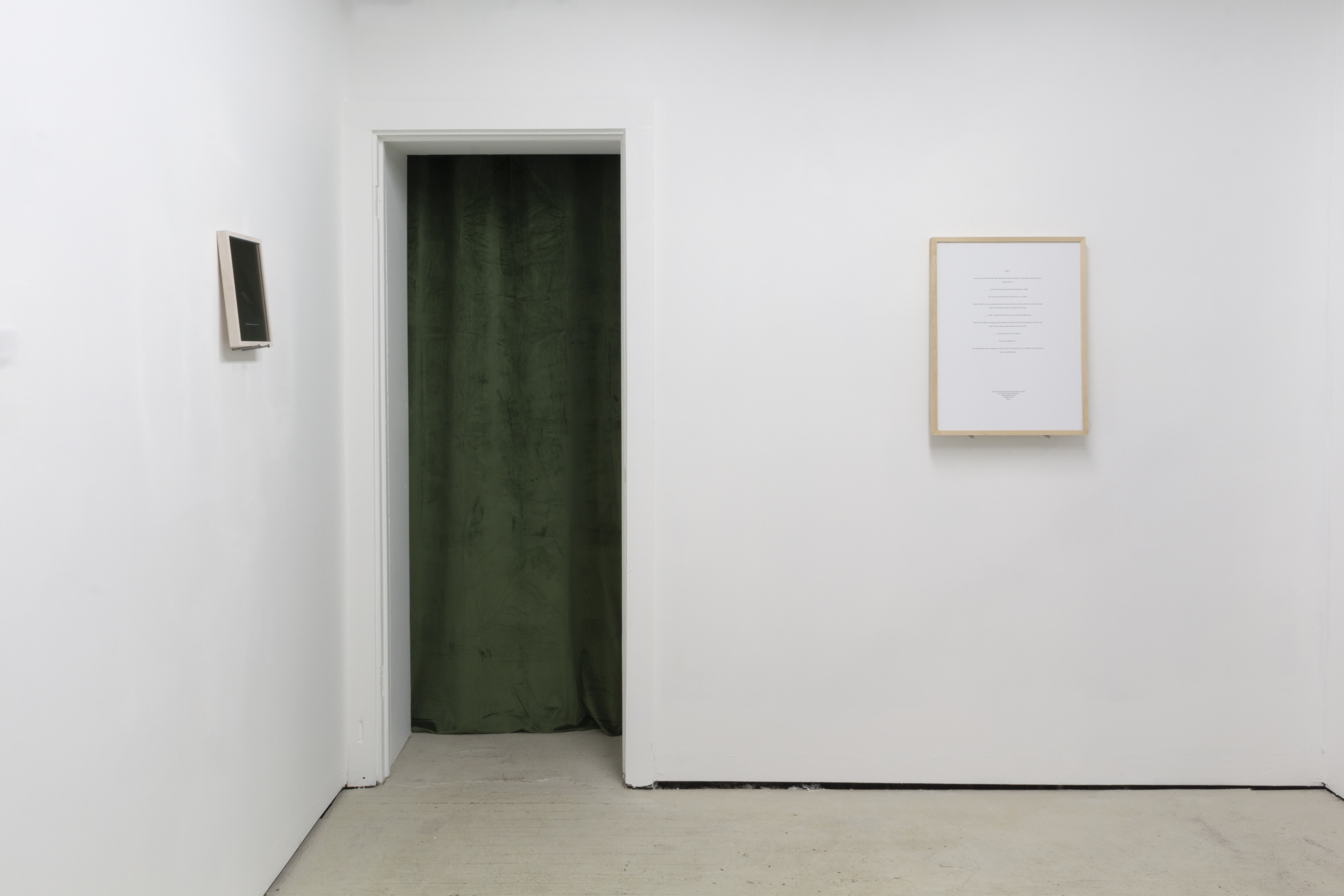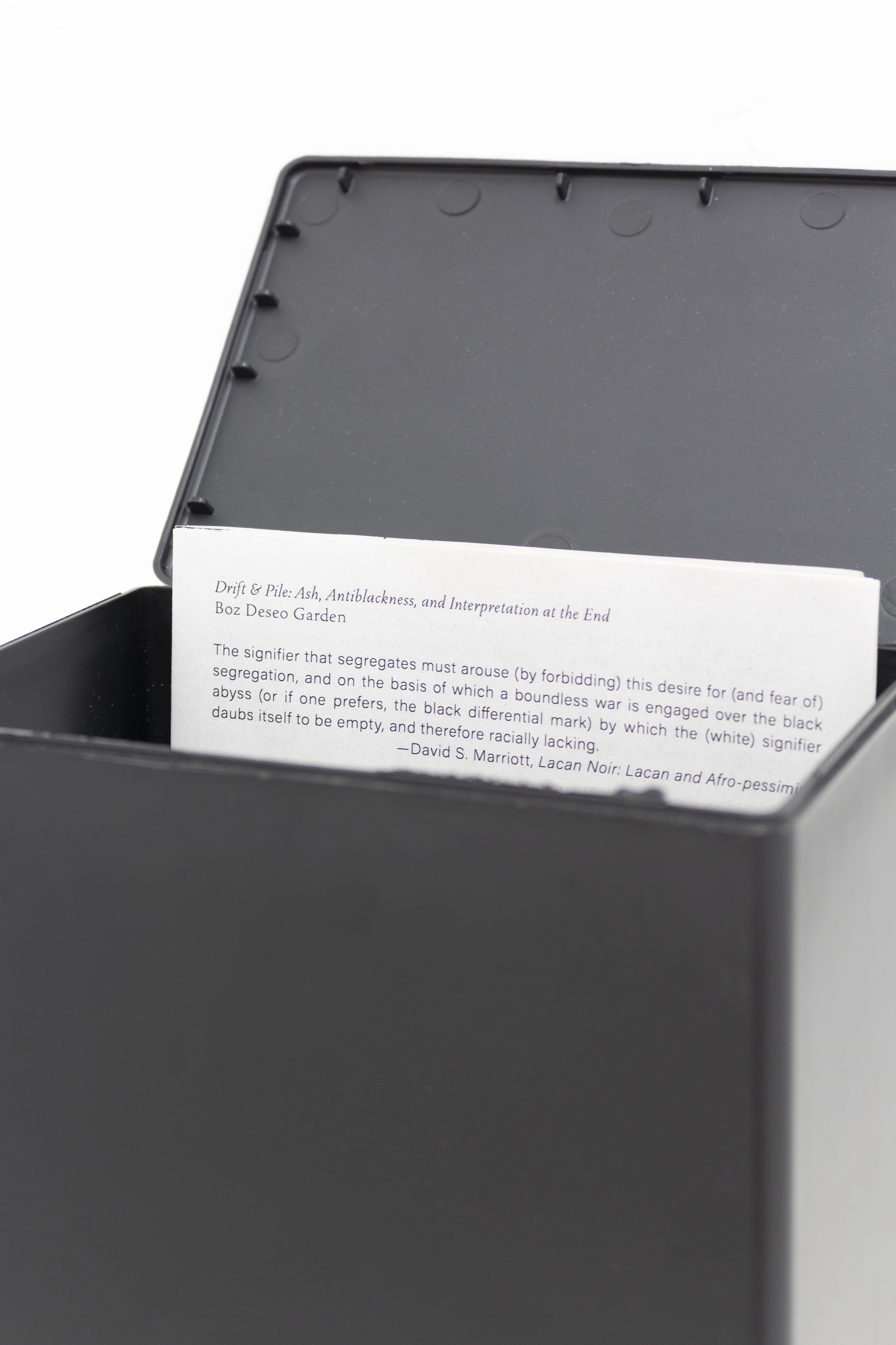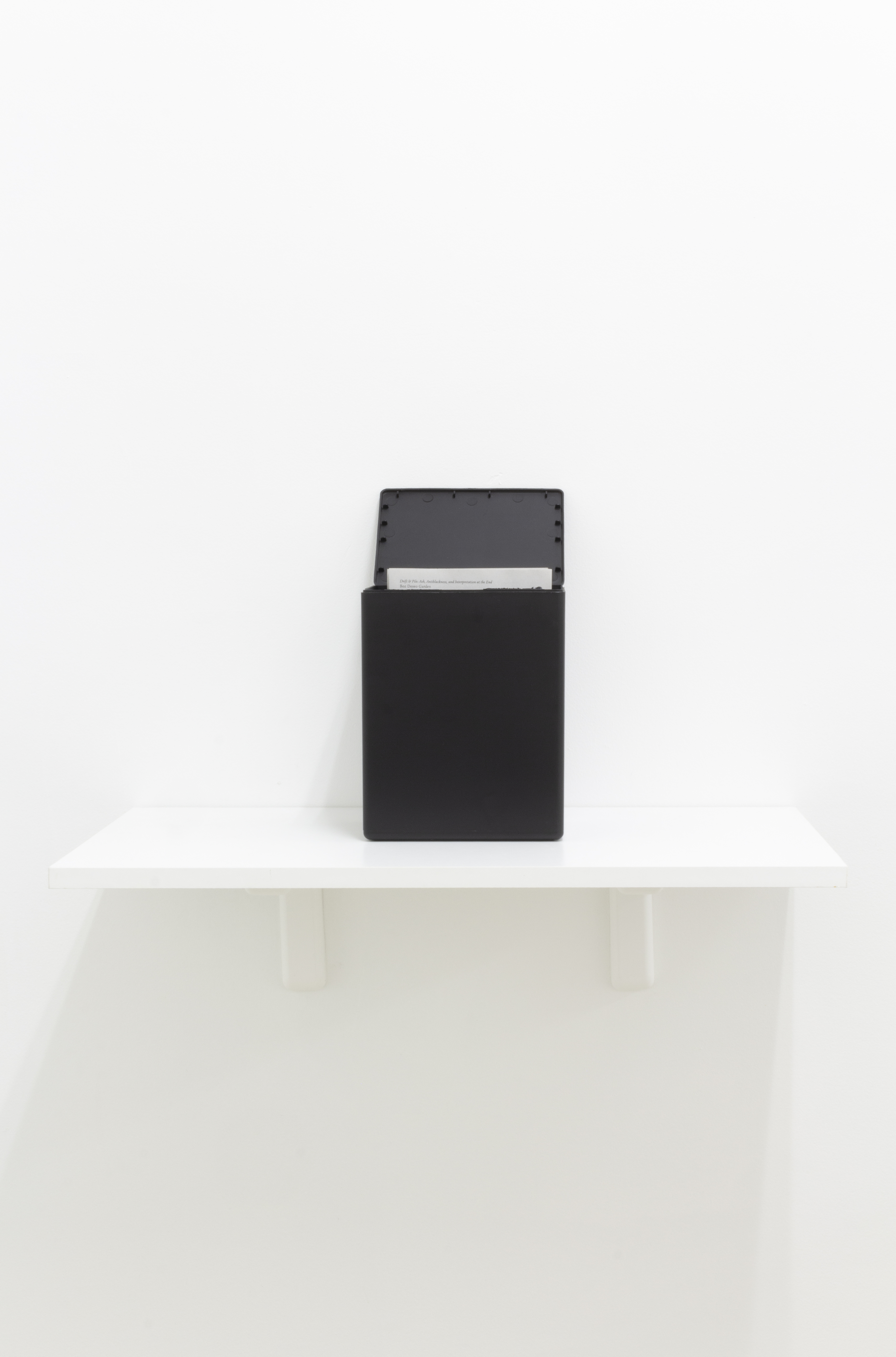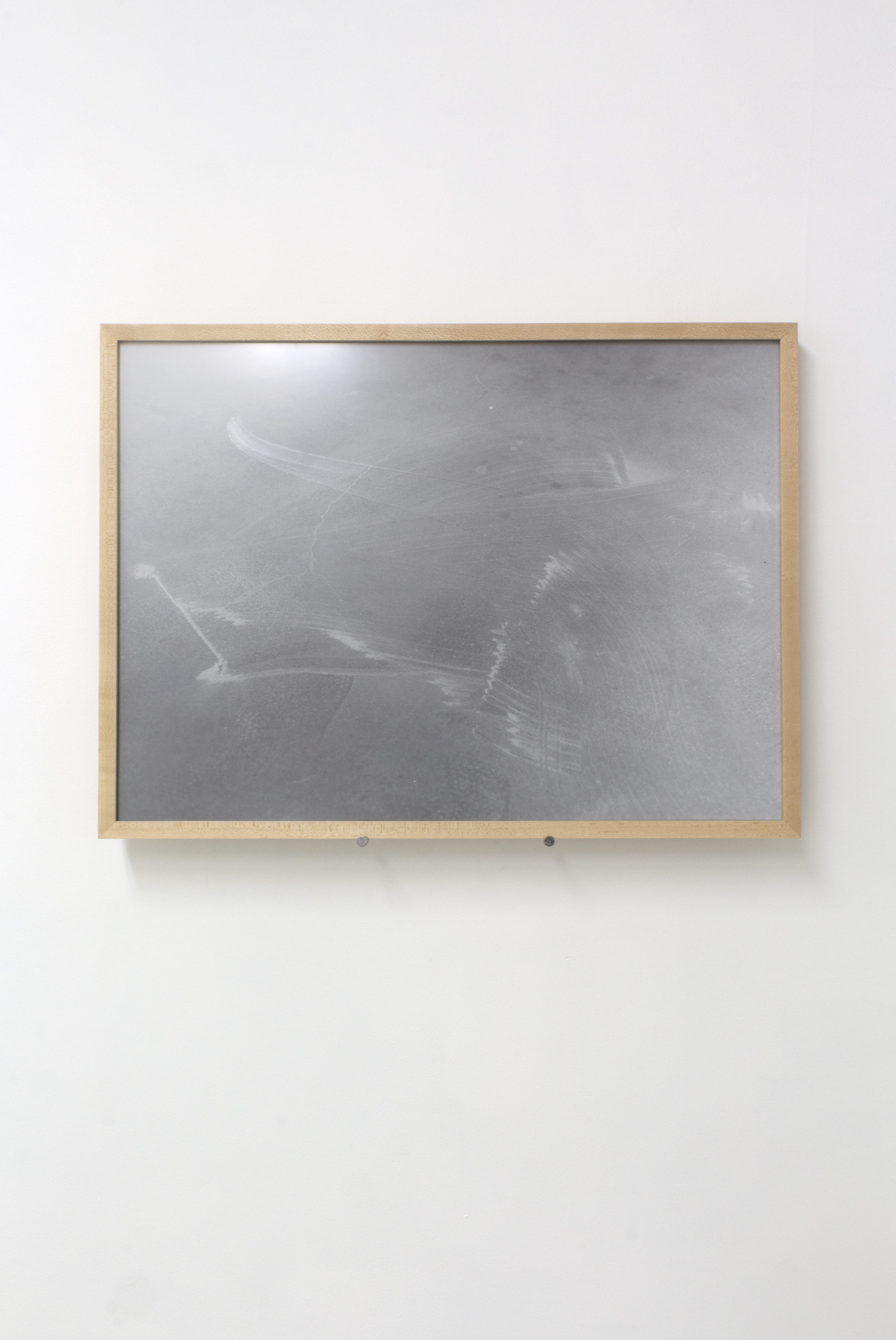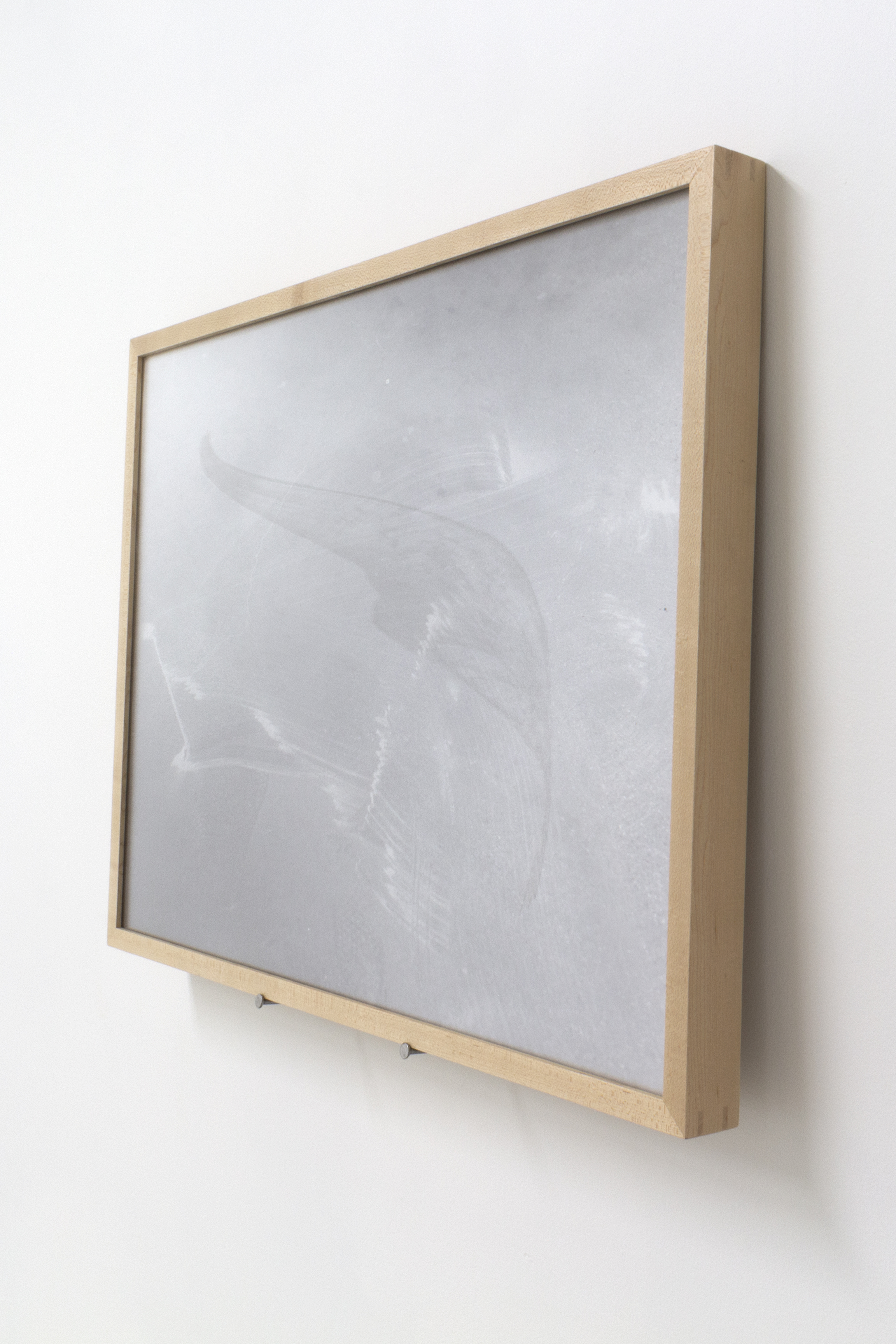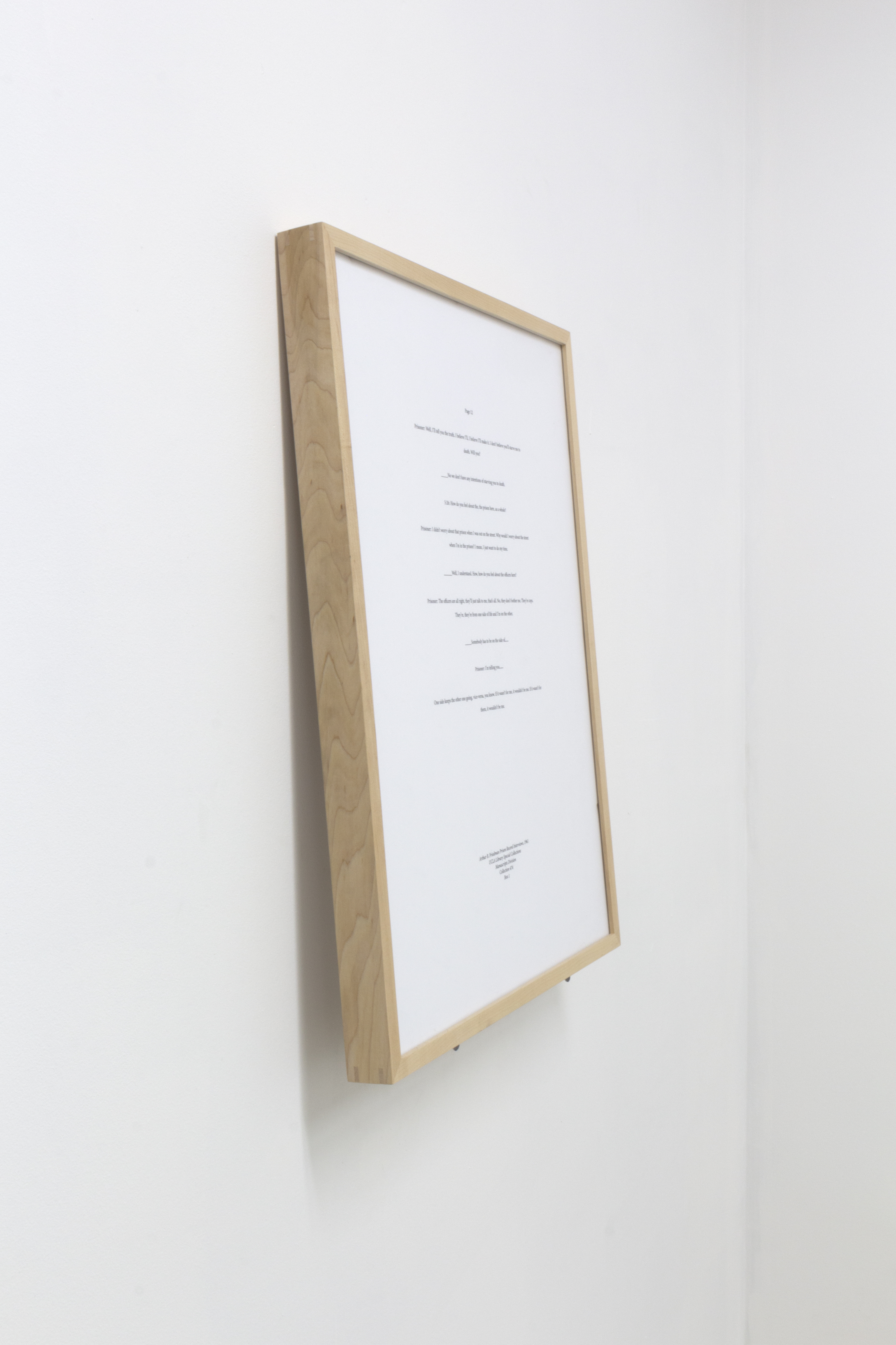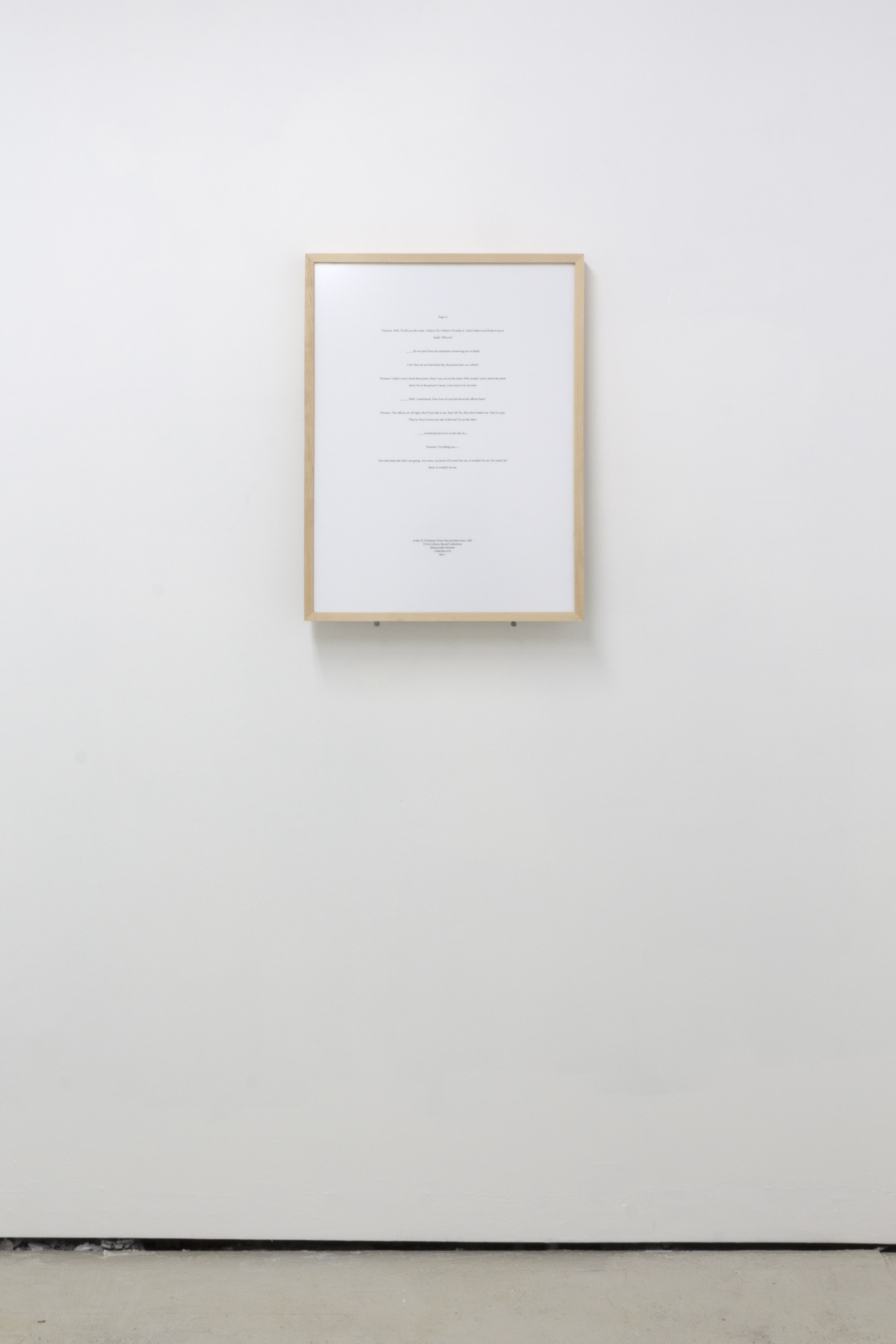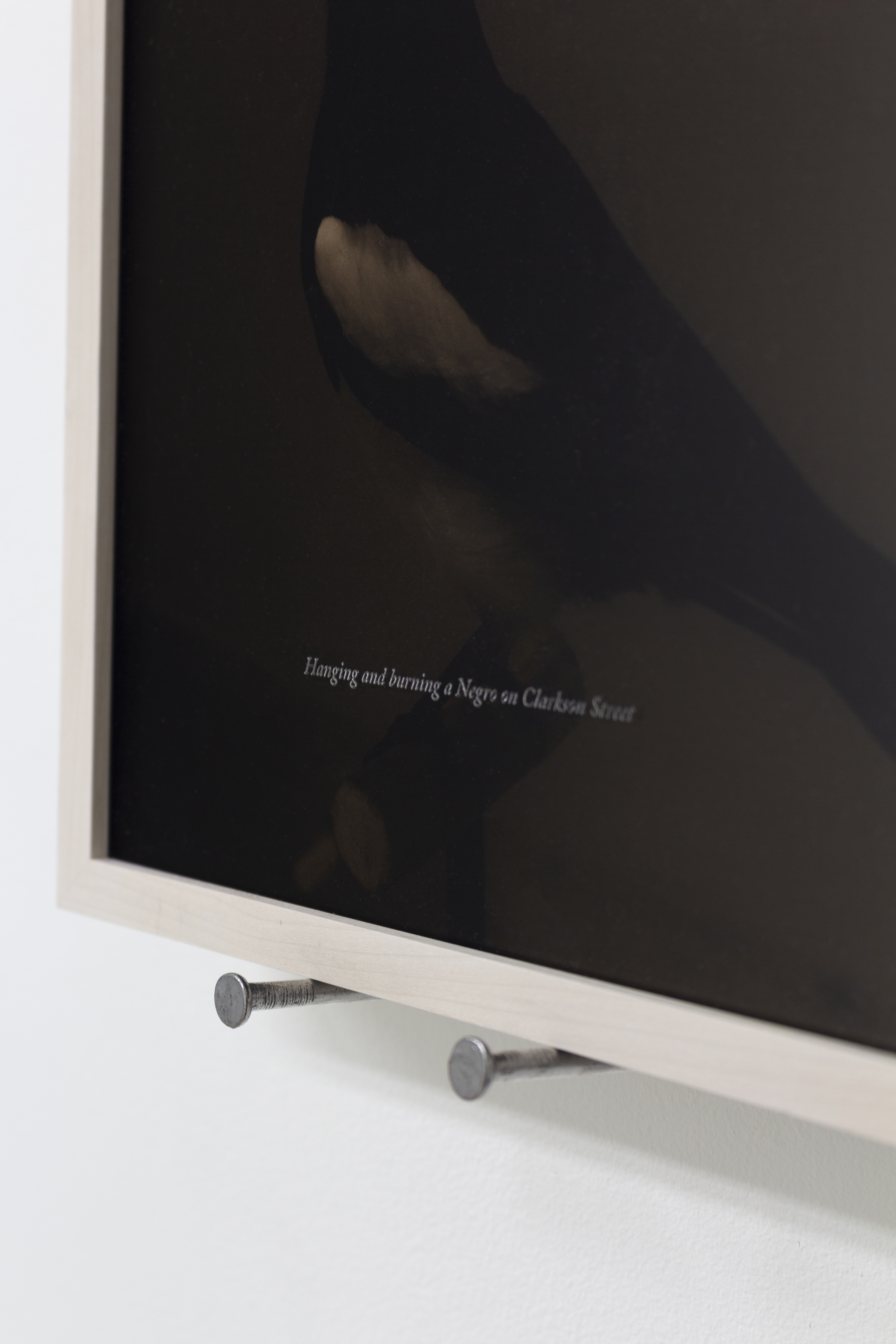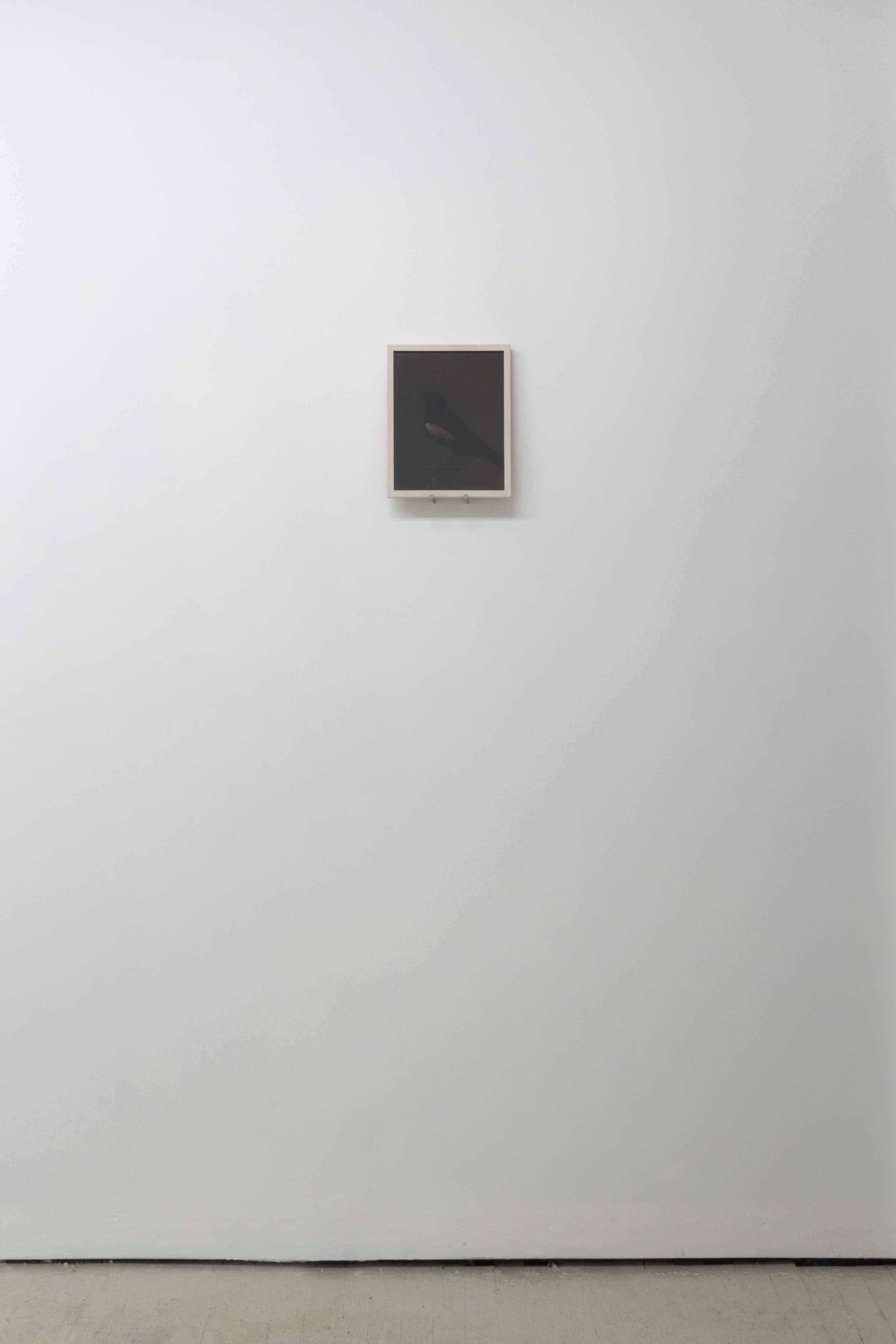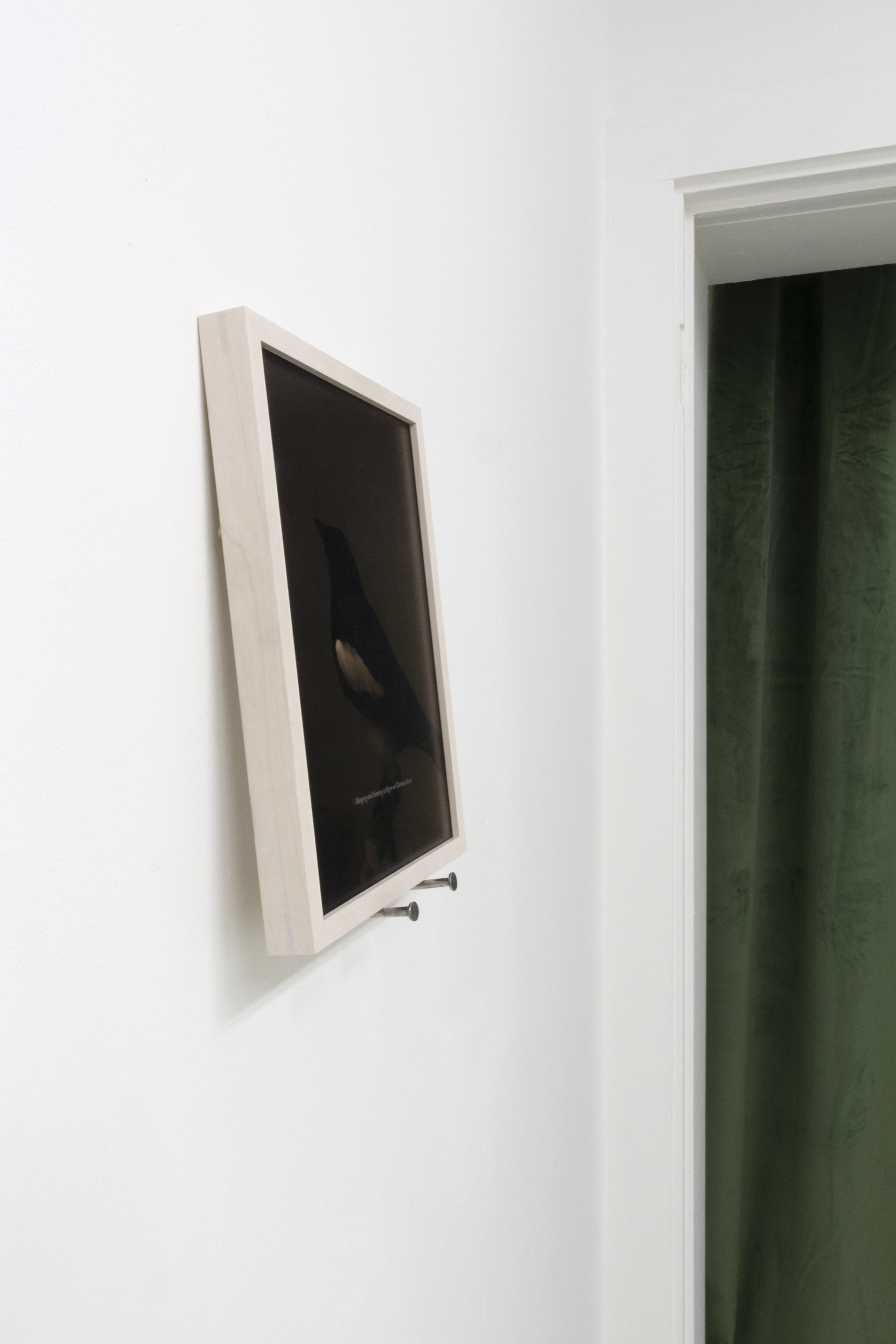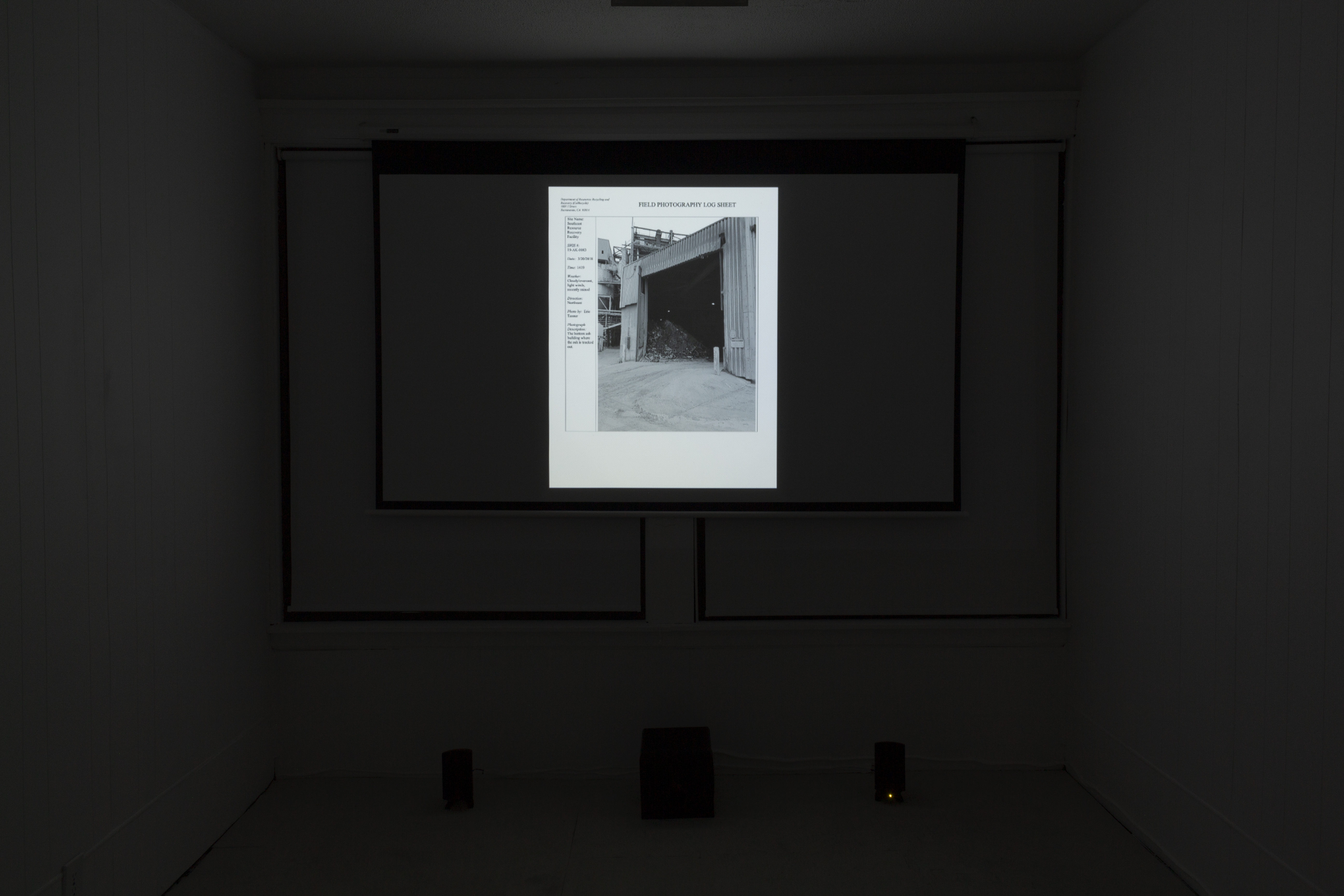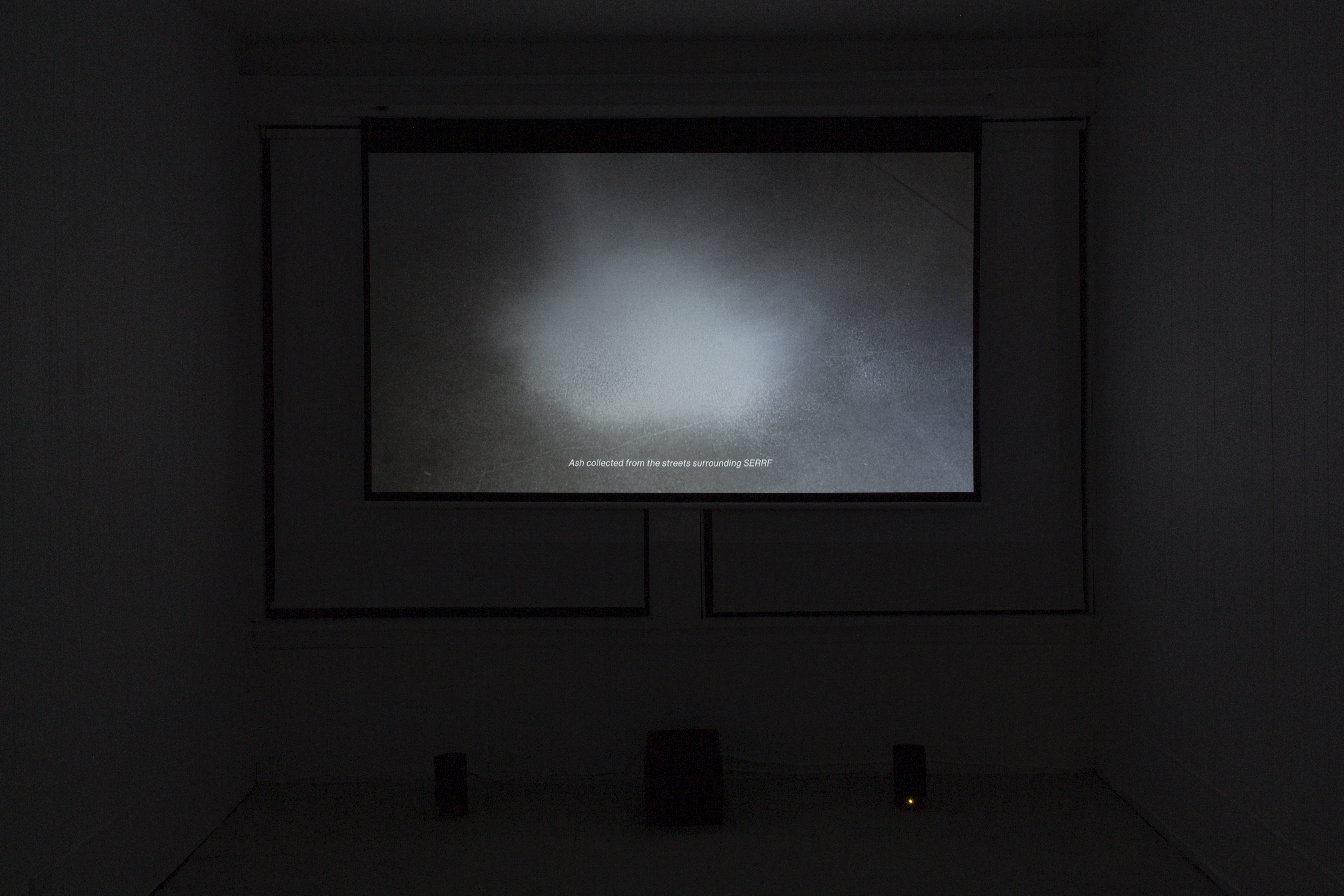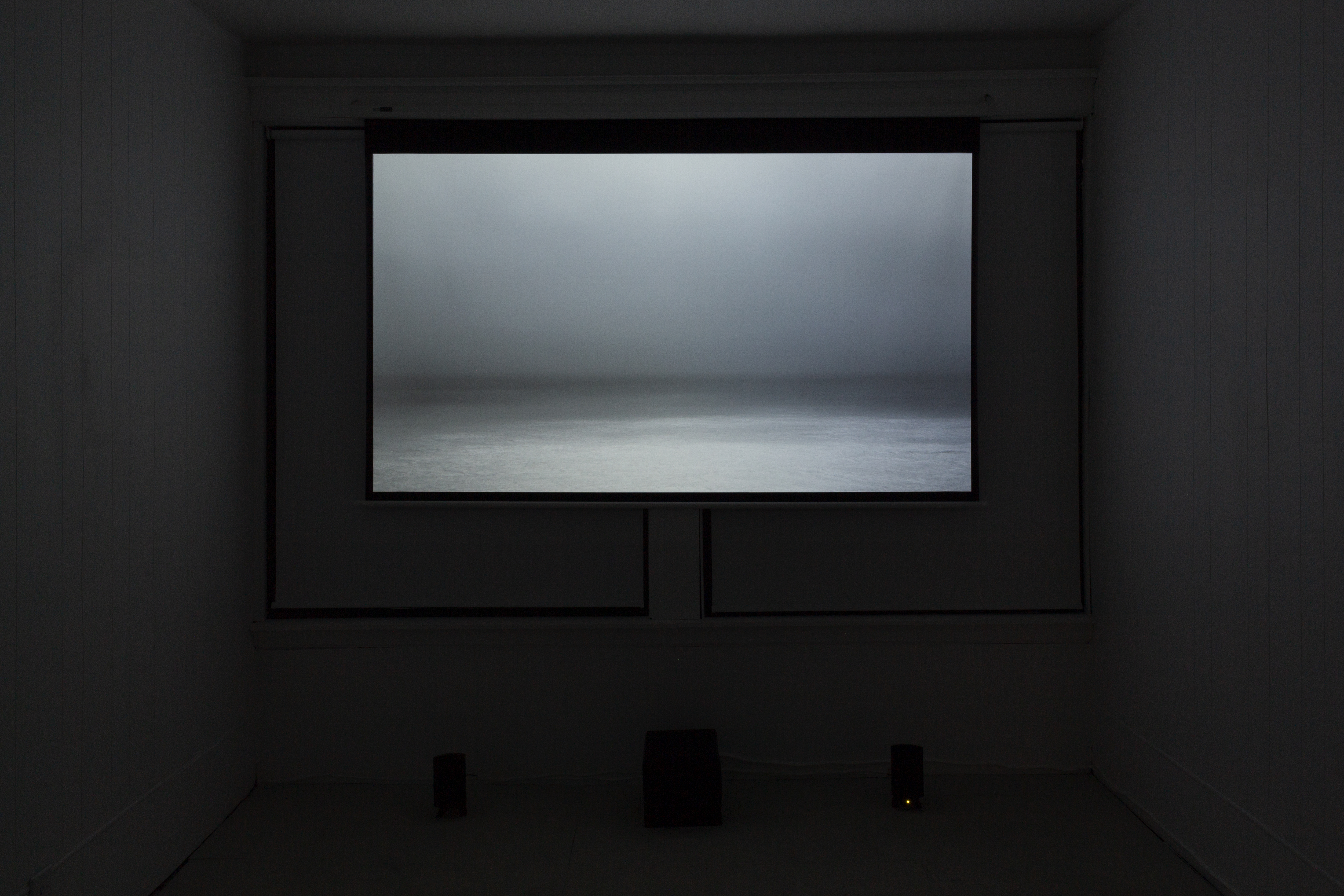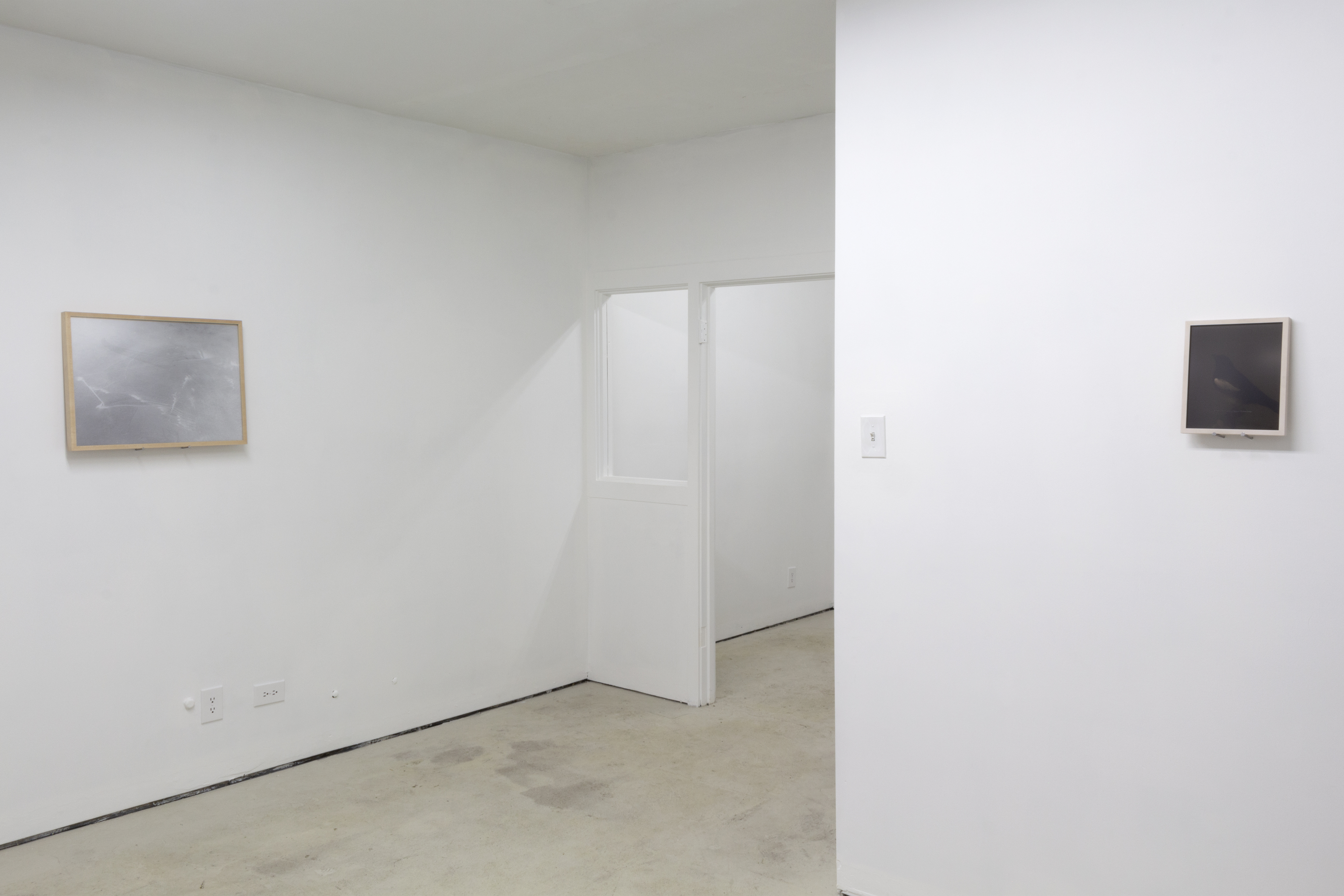![]()
Exhibition View at Jargon Projects
![]()
The Passage, 2022
Archival inkjet print, etched acrylic
24 x 18 in
25.25 x 19.25 x 1.5 in framed
Drift & Pile: Ash, Anti-Blackness, and Interpretation at the End, 2022
saddle-stitched essay
standardized cremation box
![]()
The Passage, 2022
Archival inkjet print, etched acrylic
24 x 18 in
25.25 x 19.25 x 1.5 in framed
![]()
The Passage, 2022 (detail)
Reaper, 2022
Archival inkjet print
18 x 24 in
19.25 x 25.25 x 1.5 in framed
An Auditor; Documentation of Patricia Decker’s Taxidermy Magpie, 2022
Archival inkjet print, etched acrylic
8 x 10 in
9.25 x 11.25 x 1.5 in framed
![]()
An Auditor; Documentation of Patricia Decker’s Taxidermy Magpie, 2022 (detail)
![]()
Pale Coast: A Cenotaph, 2022
Single channel digital video file, projection, sound
37 minutes, 15 seconds
![]()
Pale Coast: A Cenotaph, 2022
Single channel digital video file, projection, sound
37 minutes, 15 seconds
![]()
Pale Coast: A Cenotaph, 2022
Single channel digital video file, projection, sound
37 minutes, 15 seconds
![]()
Exhibition View at Jargon Projects
![]()
Exhibition View at Jargon Projects
Does One Write, Boz Deseo Garden presents new photographs, a critical essay, archival documents, and a short film titled Pale Coast: A Cenotaph. While the exhibition title paraphrases Saidiya Hartman's question from her book Lose Your Mother, Garden instead departs toward an Afropessimist analysis of archival study, waste incineration, and its ashes.
The works operate from the understanding that the afterlife of Slavery expresses itself metonymically—dispersing its violence and signifiers to every space, both psychic and material, until one cannot tell the difference between what is and is not a substitute for (the ghost of) Slavery. Here, Garden thinks through incineration and ash as material-metonymic expressions of Slavery and its afterlives. By looking at the production of ash from waste incinerators across different histories and contexts in the US (municipal and carceral) and their proximity to Black flesh, Garden argues that ash and Blackness spill into each other in sign, space, and affect. Throughout this work, incinerator ash is both a furnace byproduct and, like Blackness, a phobic object of the World in its collective and necessarily anti-Black unconscious. Ash stands in for more than just incinerated matter but also becomes a locus for the pleasures and anxieties of being/becoming indistinct matter whose history has been evacuated or scorched with no possibility of recovery: of being or becoming the Black/the Slave.
For Garden, and Afropessimism more broadly, the indistinct Nothing(ness) of Blackness/Slaveness gives the World its meaning and function insofar as it does so through negation and absence. This paraphrases a principal refrain within Afropessimist discourses: There is no Slave in the World, but there is no World without the Slave.
Does One Write engages the potential of an unrelenting analysis of anti-Blackness or the ways anti-Blackness is relentless in the face of analysis and its limitations: its desire to do something with and about Nothing. In that tension, Garden adopts a way of viewing that begins from and arrives at an absence; it is the impossible task of encountering a document that documents Nothing. Which is to say, a document whose subject is the Slave/the Black that might not yet desire freedom from its indistinction. The work proposes that desire transforms enslavement and freedom from distinct destinations into a gradation of intensities. For Garden, the Slave finds itself — with no memory — in a dense fog or ash heap where one can no longer tell the difference between once-distinct objects; where it is unclear where the objects of freedom or captivity begin and end. The twin horrors Garden focuses on are the horrors of being "life"/flesh that has no symbolic conflict with death and property and the horrors of not knowing the difference between getting free and staying in the Hold of the ship, the plantation, the furnace.
